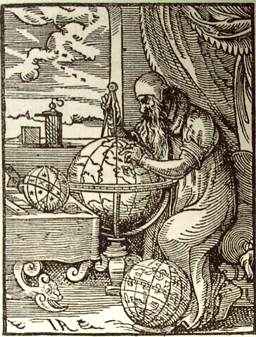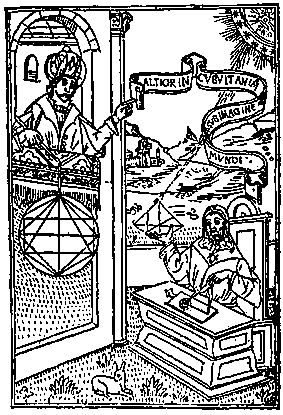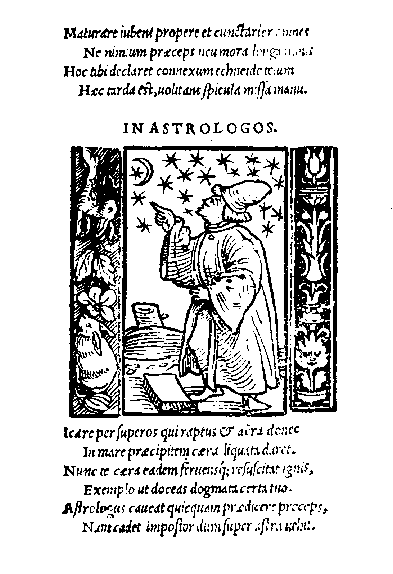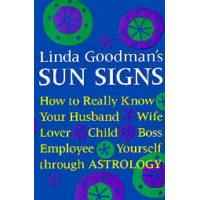|
Astrology Look! Up in the sky! It's a bird! It's a plane! It's... your FUTURE!
Look! Up in the sky! It's a bird! It's a plane! It's... your FUTURE! In a world where chaos theory rules, it's quite plausible to suggest that the stars have an effect on your life... in principle. The beating of a butterfly's wings in Tibet could have an effect on your life too... in principle. Unfortunately, if you try to apply either principle in any kind of useful way, you start running into some practical problems. Astrology is the ancient belief that the configuration of the stars in the sky on the day you were born can influence or even dictate the way that your life and personality will play out. Regardless of the very real effect of a distant star's nearly indiscernible tug of gravity, or the fractional contribution any individual star makes to the blanket of cosmic radiation which causes mutation in DNA, it's exceedingly unlikely that anyone could quantify that effect in a coherent manner. Fortunately for the syndicated newspaper feature industry, the history of human endeavor is chock full of people cheerfully trying to pull off the impossible, with little or no regard for any measurable criteria of success. The very first impulse of primitive man, as he dragged himself up the evolutionary ladder into his full homo sapiens glory, was to begin blindly worshiping the tallest thing in sight. This started with the sun, quickly extended to the moon, and from there it was only a matter of time before he began counting the stars. In charting the movement of the stars, the early astrologers discovered that they were useful for a lot of things. Navigation, for one, and recording the passage of the seasons. The latter pursuit was particularly important to the primarily agricultural societies of the day, so they built physical aids to enhance their measurements little doodads like Stonehenge and the pyramids, whose architectural features were designed to frame the stars in stone "gunsights" when an equinox or a solstice rolled around. Early civilizations jumped to the perfectly reasonable but wholly erroneous conclusion that the stars were synchronized with the seasons because they caused the seasons. Such reasoning naturally led them to speculate and then to firmly believe that the stars caused just about everything. The ancient Mesopotamians were among the first to record an organized system of astrology. At the time, astrology was a strictly mainstream religious pursuit, strictly interpreted by a caste of priest-kings. A pantheon of gods emerged, associated with the sun, moon and the brightest stars in the sky, which were actually planets.
Somewhere around 1,000 B.C. the focus of astrologers shifted from individual stars and planets of interest and toward the idea of constellations, and the constellations in turn led to the first zodiac, developed by the Assyrians a few hundred years later. By the end of the 4th century B.C., the Greeks pretty much took over the astrology thing. The As was their wont, the Greeks took a relatively simple concept and made it extremely complicated, mapping out elaborate constellation maps, zodiac charts and the very first horoscopes. In the second century A.D., the great Greek mathematician Ptolemy wrote the most extensive tracts to date on modern astrology. Ptolemy's work was hugely influential on what passed for science for centuries to come. It was particularly memorable for creating an incredibly compelling mathematical case that placed the earth at the center of the universe, with the sun, moon and stars all revolving around our fine little planet. In mathematical circles, there is a furious and impassioned debate about whether the mistakes in Ptolemy's work were the result of his times, the limitations of his equipment for making observations or simply because he was one lazy fuck who didn't bother to check his figures. Fortunately, we're not in mathematical circles, so we're moving on. Suffice it to say, Galileo was dragged before the Inquisition in 1633 for correcting Ptolemy's mistakes. However, Galileo himself was still a practicing astrologer he just wanted the sun at the center of the universe instead of the earth. Astrology had its ups and downs in the Christian era. After all, the actual birth of Jesus Christ was technically predicted by astrologers (better known as magi), who followed a star to bring gold, frankincense and myrrh to the newborn. As the myrrh-besotted Christians began their long march toward taking over the world, they were extremely undecided about whether astrology should be part of their world view or not. After several centuries of vacillation, they finally came down against it in the 16th century, then reiterated that view with increasing vehemence for the next couple hundred years.
By the time it became clear that constellations were not, in fact, any sort of unit and that the stars in any given constellation were in fact trillions of miles away from each other, there was very little intellectual oomph left in the concept. But Ptolemy's bastard child wouldn't die so easily. Despite the fact that increasing numbers of people thought astrology was a load of horse shit, it didn't go away. In fact, it remained incredibly popular even in its darkest times, and by the 1970s, astrology rode back into town in a triumphant return, bolstered by a widespread surge in popular beliefs that were largely disconnected from rational thought processes. We're talking about a decade in which the Bermuda Triangle was the subject of multiple best-sellers and Bigfoot had a recurring role on the most popular action show of the day. Right next to the Triangle books was a colorful tome called "Linda Goodman's Sun Signs," which was one of the major drivers behind the resurgence. Goodman crafted an entertaining read that analyzed the various zodiac signs with surprising versatile language, to the point that even a mildly skeptical person could read a few pages about their zodiac character and think, "Yeah, that's me." And it was even easier to read a few pages and think, "Yeah, that's my significant other." The glib little newspaper horoscope, a fortune cookie of a prognostication, is available in virtually every newspaper in the United States and thousands more abroad. Sydney Omarr, who until his death was the most widely syndicated astrologer in the business, also sold 50 million books worldwide. Let me repeat that: He sold 50 MILLION BOOKS on astrology. The stars are giving me a message that Omarr died a very wealthy man.
That's if you want a "quality" horoscope, anyway. If you suspect that the whole thing is bullshit, why bother getting the high-end product? You can cruise on over to any one of the hundreds of Web sites whose prognostication skills were not sharp enough to predict that they needed a revenue model. Do-it-yourself astrological charts complete with clickable explanations of all the squiggly lines and arcane symbols are quick and free, for as long as the venture capital lasts. If you're in denial about the full ramifications of the fact that, despite all your superior knowledge and learning, you not only know your own sun sign but your significant other's sign too, and that you're even able to discuss the attributes of each, you might want to take part in the latest craze to sweep the astrological world the post-modern horoscope, found in "alternative" newspapers everywhere. Consider the following recent example:
|
 At this point, the stars were still primarily seen as harbingers of particularly great or awful events, such as floods, earthquakes, wars, the deaths of kings and the
At this point, the stars were still primarily seen as harbingers of particularly great or awful events, such as floods, earthquakes, wars, the deaths of kings and the  The growing popularity of real science up to and through the Industrial Revolution led to a pretty bloody day of reckoning for astrology and its adherents, as discovery after discovery decimated the premises on which it was based.
The growing popularity of real science up to and through the Industrial Revolution led to a pretty bloody day of reckoning for astrology and its adherents, as discovery after discovery decimated the premises on which it was based.  But it doesn't stop at a three-sentence wisecrack about your day. Thanks to the miracle of the Internet, just about anyone can get a complex natal chart of their lives drawn up and exhaustively interpreted sometimes for less than $100! And with just about any old credit card!
But it doesn't stop at a three-sentence wisecrack about your day. Thanks to the miracle of the Internet, just about anyone can get a complex natal chart of their lives drawn up and exhaustively interpreted sometimes for less than $100! And with just about any old credit card!